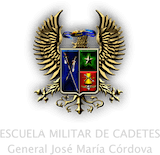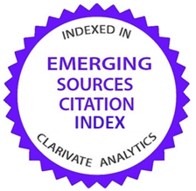El Ejército Español en la asistencia a las fuerzas de seguridad
Lecciones aprendidas en Irak
DOI:
https://doi.org/10.21830/19006586.1075Palabras clave:
conflicto armado, conflictos internacionales, cultura organizacional, entrenamiento militar, operaciones militaresResumen
Este artículo analiza las lecciones aprendidas por el Ejército español en la Operación de Asistencia a Fuerzas de Seguridad (SFA) en Irak entre 2015 y 2020. La investigación utiliza datos primarios de 22 entrevistas personales realizadas a oficiales y suboficiales españoles, así como datos secundarios extraídos de una base de datos que contiene el registro online de misiones del Ejército español. Los resultados identifican los escenarios y actividades realizadas en las operaciones SFA, así como las principales lecciones aprendidas por el Ejército español en Irak. Las dos principales lecciones son la prevención de ataques internos y la relevancia del conocimiento de las dimensiones culturales para mejorar los procesos de entrenamiento. Las conclusiones pueden extrapolarse a otros ejércitos europeos, proporcionando recomendaciones políticas para el entrenamiento de fuerzas locales en operaciones SFA.
Descargas
Referencias bibliográficas
Abrahamsen, R. (2016). Exporting decentred security governance: The tensions of the security sector reform. Global Crime, 17 (3-4), 281-295. https://doi.org/10.1080/17440572.2016.1197507
Adamsky, D. & Bjerga, K. I. (2010). Introduction to the information technology revolution in Military Affairs. Journal of Strategic Studies, 33 (4), 463-468. https://doi.org/10.1080/01402390.2010.489700.
Alas, R. & Sharifi, S. (2010). Organizational learning and resistance to change in Estonian Companies. Human Resource development international, 5 (3), 313-331. https://doi.org/10.1080/13678860210143550
Álvarez-Ossorio, I. (2016). Siria: Revolución, sectarismo y yihad. La Catarata.
Ansorg, N. (2017). Security sector reform in Africa: Donor approaches versus local needs. Contemporary Security Policy, 38 (1), 129-144. https://doi.org/10.1080/13523260.2016.1278343
Bellamy, A. J. (2003). Security Sector Reform: Prospects and problems. Global Change, Peace and Security, 15 (2), 101-119. https://doi.org/10.1080/14781150303903
Bento-Soares, J. A. (1983). Iberian Peninsula in the Atlantic Community: Problems and prospects. Fort Leavenworth.
Brockman, B. K. (2013). The evolution of organizational learning in new venture development. Journal of Small Business & Entrepreneurship, 26 (3), 261-275. https://doi.org/10.1080/08276331.2013.803673
Brustlein, C. (2011). Apprendre ou disparaître? Le retour d’experience dans les armées occidentales. Focus Strategique nº33. IFRI. Laboratoire de Recherche sur la Défense.
Busch, M. & Hostetter, C. (2009). Examining organizational learning for application in Human service organizations. Administration in Social Work, 33 (3), 297-318. https://doi.org/10.1080/03643100902987929
Catignani, S. (2013). Coping with knowledge: Organizational learning in the British Army? Journal of Strategic Studies, 37 (1), 30-64. https://doi.org/10.1080/01402390.2013.776958
Cayla, D. (2008). Organizational learning: A Process between equilibrium and evolution. Journal of Economic Issues, 42 (2), 553-559. https://doi.org/10.1080/00213624.2008.11507165
Colom, G. (2016). Transforming the Spanish military. Defence Studies, 16 (1), 1-19. https://doi.org/10.1080/14702436.2016.1146078
Davidson, J. (2010). Lifting the Fog of Peace. How Americans learned to fight modern war. University of Michigan Press.
Doeser, F. & Eidenfalk, J. (2019). Using strategic culture to understand participation in expeditionary operations: Australia, Poland and the coalition against the Islamic State. Contemporary Security Policy, 40 (1), 4-29. https://doi.org/10.1080/13523260.2018.1469709
Donais, T. (2018). Security sector reform and the challenge of vertical integration. Journal of intervention and Statebuilding, 12 (1), 31-47. https://doi.org/10.1080/17502977.2018.1426681
Durán, M. (2014). Ejército español y ONG en Kosovo: Relaciones cooperativas en escenarios de posconflicto y estabilización. Editorial Universidad de Granada.
Durán, M. (2010) Las relaciones entre las fuerzas armadas y ONG en procesos de reconstrucción y estabilización postconflicto: el caso español en los Balcanes. Editorial Universidad de Granada.
Durán, M. & Ávalos, A. (2013). Culturas cruzadas en conflicto. Militares y poblaciones locales en misiones internacionales: Afganistán y Líbano. Editorial Universidad de Granada.
Durán, M. (2014). Ejército español y ONG en Kosovo: Relaciones cooperativas en escenarios de posconflicto y estabilización. Editorial Universidad de Granada y MADOC.
Durán, M.; Adé, I.; Martínez, R. &Calatrava, A. (2016). Experiencias de la participación militar española en misiones internacionales: el caso de los oficiales del Ejército de Tierra (1993-2015). Revista Española de Ciencia Política, 42,127-147. https://doi.org/10.21308/recp.42.05
Enstad, K. (2020). Doing one’s job: translating politics into military practice in the Norwegian mentoring mission to Iraq. Small Wars & Insurgencies, 31(2), 402-419. https://doi.org/10.1080/09592318.2020.1714847
Farrell, T. G. &Terriff T. (2002). The sources of military change: Culture, Politics, Technology. Lynne Rienner.
Farrell, T. (2005). World culture and military power. Security Studies 14 (3), 448-488. https://doi.org/10.1080/09636410500323187
Fernández de la Cigoña, F. (2014). La mentorización en el Jazeera Training Camp. Revista Ejército, 876, 89-95.
García Cantalapiedra, D. (2014). La evolución de la participación española en las operaciones de mantenimiento de la paz: Una imagen de España en el exterior 1989-2014. Comillas Journal of International Relations, 1, 81-90. https://doi.org/10.14422/cir.i01.y2014.006
Grissom, A. (2006). The future of military innovation studies. Journal of Strategic Studies, 29 (5), 905-934. https://doi.org/10.1080/01402390600901067
Haaland, T. (2016). The limits to learning in military operations: Bottom-Up adaptations in the Norwegian army in northern Afghanistan, 2007-2012. Journal of Strategic Studies, 39 (7), 999-1022. https://doi.org/10.1080/01402390.2016.1202823
Horowitz, M. (2010). The Diffusion of Military Power: Causes and consequences for international politics. Princeton University Press.
Hsu, S. (2007). Human Capital, Organizational Learning, network resources and organizational innovativeness. Total Quality Management and Business Excellence 18 (9), 983-998. https://doi.org/10.1080/14783360701592208
Kier, E. (1995). Culture and Military Doctrine: France between the Wars. International Security, 19 (4), 65-93. https://doi.org/10.2307/2539120
Kober, A. (2015). Practical Soldiers. Israel’s Military thought and its formative factors. History of Warfare, 107. Brill.
Ladwig, W. (2007). Training Foreign Police: A missing aspect of U.S. Security assistance to counterinsurgency. Comparative Strategy, 26 (4), 285-293. https://doi.org/10.1080/01495930701598599
Liao, S., Chang, W., Hu, D. & Yueh, Y. (2011). Relationships among organizational culture, knowledge acquisition, organizational learning and organizational innovation in Taiwan’s banking and insurance industries. The international Journal of Human Resource Management, 23 (1), 52-70. https://doi.org/10.1080/09585192.2011.599947
Mariano-Pérez, J. (2014). La asistencia militar de operaciones especiales. La experiencia en EUTM Mali. Revista Ejército, 880 (7), 64-73.
Marsh, N. & Rolandsen, O. H. (2021). Fragmented we fall: Security Sector Cohesion and the Impact of Foreign Security Force Assistance in Mali. Journal of Intervention and Statebuilding, 15 (5), 614-629.
Martínez, R.,Adé, I., Durán, M. & Díaz, A. (2013). Experiencias de la participación militar española en misiones internacionales (2000-2012). Revista Española de Ciencia Política, 32, 205-223.
Murray, W. (2002). Two lectures: Transformation and Innovation: The lessons of the 1920s and 1930s Looking at two distinct periods of military innovation: 1872-1914 and 1920-1939. Institute for Defense Analysis.
Nagl, J. (2002). Counterinsurgency lessons from Malaya and Vietnam. Learning to eat soup with a knife. Praeger.
Nielsen, S. (1999). US Army training and doctrine command 1973-1982: A case study in successful peacetime military reform. Master Thesis. US Army Command and General Staff College.
North Atlantic Treaty Organization (NATO). (2016). Allied joint doctrine for Security Force Assistance (SFA). Edition A, Version 1. NATO Standarization Office.
Paasche, T. &Gunter, M. (2016). Revisiting Western Strategies against the Islamic State in Iraq and Syria. The Middle East Journal, 70 (1), 9-29.
Pérez, S., Montes, J. &Vázquez, C. (2005). Human resources practices, organizational learning and business performance. Human resource development international, 8 (2), 147-164. https://doi.org/10.1080/13678860500100103
Posen, B. (1984). The Sources of Military Doctrine: France, Britain and Germany between the World Wars. Cornell University Press.
Raitasalo, J. (2014). Moving beyond the “Western Expeditionary Frenzy”. Comparative Strategy, 33 (4), 372-388. https://doi.org/10.1080/01495933.2014.941728
Rolandsen, O., Dwyer, M. &Reno, W. (2021). Security Force Assistance to fragile states: A framework of analysis. Journal of Intervention and Statebuilding, 15 (5), 563-579.
Rosen, S. (1991). Winning the next war. Innovation and the Modern Military. Cornell University Press.
Spanish Army. (2017). Asistencia a Fuerzas de Seguridad (SFA). Training and Doctrine Command.
Spanish Army. (2018). Asistencia a Fuerzas de Seguridad. Experiencias y Lecciones Aprendidas. Training and Doctrine Command.
Spanish National Security Department (DSN). (2017). Estrategia de Seguridad Nacional. Un proyecto compartido de todos para todos. Government of Spain.
US Department of Defense (2017) Security Cooperation. Joint Publication 3-20. Joint Chiefs of Staff.
US Marine Corps. (2018). Expeditionary Operations. Department of the Navy.
Van Creveld, M. (1991). Technology and War. From 2000 B.C. to the Present. New York: The Free Press.
Wilén, N. (2021). Analysing (In)formal relations and networks in Security Force Assistance: The case of Niger. Journal of Intervention and Statebuilding, 15(5), 580-597.
Descargas
Publicado
Cómo citar
Número
Sección
Licencia
Derechos de autor 2023 Revista Científica General José María Córdova

Esta obra está bajo una licencia internacional Creative Commons Atribución-NoComercial-SinDerivadas 4.0.
Datos de los fondos
-
Ministerio de Ciencia, Innovación y Universidades
Números de la subvención FPU17/00178

| Estadísticas de artículo | |
|---|---|
| Vistas de resúmenes | |
| Vistas de PDF | |
| Descargas de PDF | |
| Vistas de HTML | |
| Otras vistas | |
























